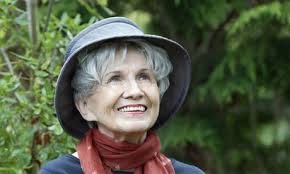Back in the 90s ordtak
Antall ordtak er 1469561
varav 1490770 på nordiska
Ordtak (1469561 st) Søk
Kategorier (2627 st) Søk
Forfattere (167535 st) Søk
Bilder (4592 st)
Født (10495 st)
Døde (3318 st)
Datoer (9517 st)
Land (5315 st)
Idiom (4439 st)
Lengde
Topplistor (6 st)
Ordspråksmusik (20 st)
Statistik
Denna sidan visar ordspråk som liknar "Back in the 90s, sociologists studied what they called 'boomerang children,' adult children who returned home or were in and out of their parents' home. What they found that it wasn't because they were freeloaders. It was because the economy was bad.".
Linkene lenger ned har ikke blitt oversatt till norsk. Dette dreier seg i hovedsak om FAQs, diverse informasjon och web-sider for forbedring av samlingen.
Här har vi samlat citat sedan 1990!
Vad är ordtak?
Hur funkar det?
Vanliga frågor
Om samlingen
Ordspråkshjältar
Hjälp till!
varav 1490770 på nordiska
Ordtak (1469561 st) Søk
Kategorier (2627 st) Søk
Forfattere (167535 st) Søk
Bilder (4592 st)
Født (10495 st)
Døde (3318 st)
Datoer (9517 st)
Land (5315 st)
Idiom (4439 st)
Lengde
Topplistor (6 st)
Ordspråksmusik (20 st)
Statistik
Denna sidan visar ordspråk som liknar "Back in the 90s, sociologists studied what they called 'boomerang children,' adult children who returned home or were in and out of their parents' home. What they found that it wasn't because they were freeloaders. It was because the economy was bad.".
Linkene lenger ned har ikke blitt oversatt till norsk. Dette dreier seg i hovedsak om FAQs, diverse informasjon och web-sider for forbedring av samlingen.
Här har vi samlat citat sedan 1990!
Vad är ordtak?
Hur funkar det?
Vanliga frågor
Om samlingen
Ordspråkshjältar
Hjälp till!
 |
Linkene lenger ned har ikke blitt oversatt till norsk. Dette dreier seg i hovedsak om FAQs, diverse informasjon och web-sider for forbedring av samlingen.
Här har vi samlat citat sedan 1990!
Vad är ordtak?
Hur funkar det?
Vanliga frågor
Om samlingen
Ordspråkshjältar
Hjälp till!
|

